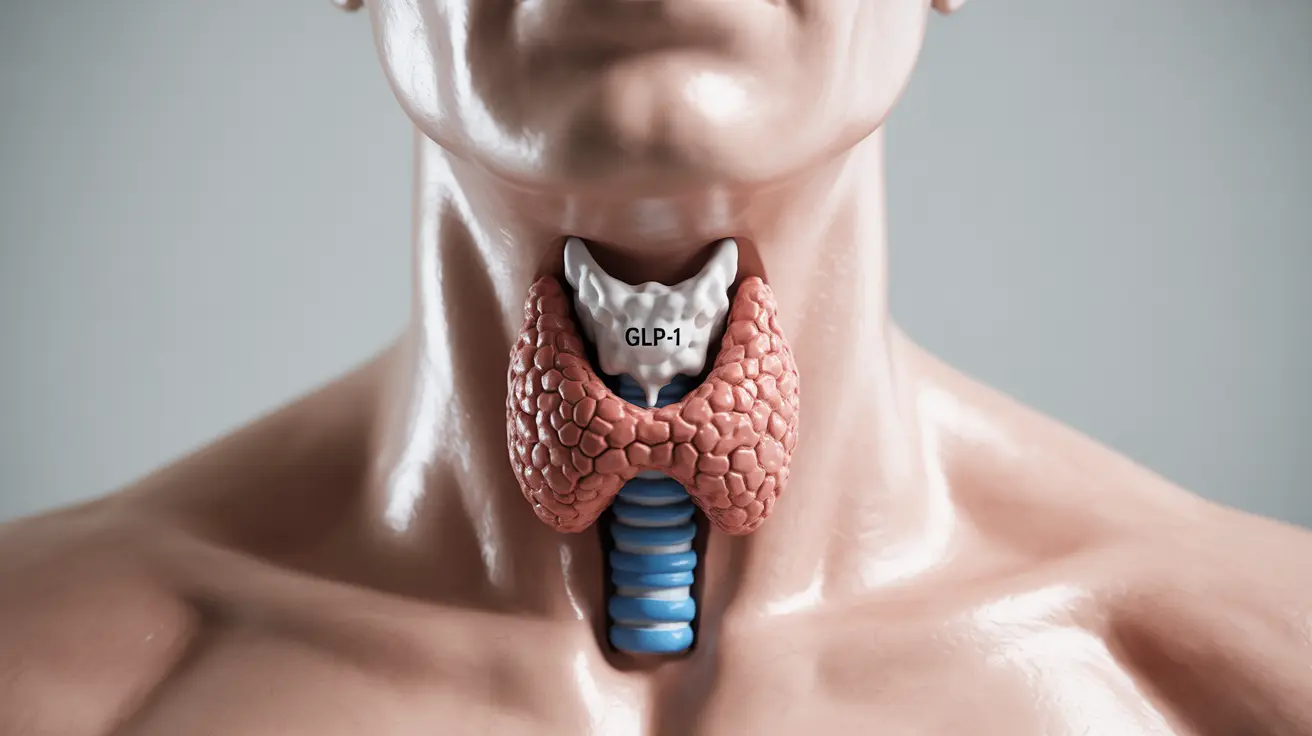As GLP-1 receptor agonist medications like Zepbound gain popularity for weight management, questions about their safety profile, particularly regarding thyroid cancer risk, have become increasingly important. This comprehensive guide examines the relationship between Zepbound and thyroid cancer, helping you understand the current scientific evidence and safety considerations.
The Connection Between Zepbound and Thyroid Cancer Risk
Zepbound (tirzepatide) belongs to the class of GLP-1 receptor agonist medications, which carry FDA black box warnings about thyroid cancer. However, it's crucial to understand that this warning stems primarily from studies in rodents, and the risk profile in humans appears to be different.
Current clinical data and real-world evidence suggest that the theoretical risk of thyroid cancer in humans taking Zepbound is extremely low. This understanding continues to evolve as more research becomes available.
Understanding the FDA Black Box Warning
- Findings from animal studies showing an increased risk of thyroid C-cell tumors
- A commitment to patient safety and transparent risk communication
- The need for healthcare providers to carefully screen patients before prescribing
Who Should Exercise Caution with Zepbound
Certain individuals should avoid using Zepbound or discuss their specific situation carefully with their healthcare provider:
- People with a personal or family history of medullary thyroid carcinoma (MTC)
- Individuals with Multiple Endocrine Neoplasia syndrome type 2 (MEN 2)
- Patients with pre-existing thyroid conditions requiring close monitoring
- Those with a history of pancreatic tumors
Monitoring Thyroid Health While Taking Zepbound
While using Zepbound, it's important to be aware of potential thyroid-related symptoms that should prompt medical attention:
- A lump or swelling in the neck
- Difficulty swallowing
- Persistent hoarseness
- Unexplained throat pain
- Swollen lymph nodes in the neck
Latest Research on GLP-1 Medications and Thyroid Safety
Recent studies have provided reassuring data about the thyroid safety profile of GLP-1 receptor agonists in humans. These medications have been used by millions of patients worldwide, with surveillance data showing no clear signal for increased thyroid cancer risk in real-world use.
Frequently Asked Questions
- Does taking Zepbound increase the risk of thyroid cancer in humans?
Current evidence suggests that the risk of thyroid cancer in humans taking Zepbound is very low. While animal studies showed concerns, human data has not demonstrated a significant increased risk.
- Why do GLP-1 drugs like Ozempic and Zepbound have FDA black box warnings about thyroid cancer?
These warnings exist because of findings in rodent studies and represent a cautionary approach to patient safety, even though human data hasn't shown the same risks.
- Who should avoid using Zepbound due to thyroid cancer concerns?
People with personal or family history of medullary thyroid carcinoma (MTC), those with Multiple Endocrine Neoplasia syndrome type 2 (MEN 2), and individuals with specific thyroid conditions should avoid using Zepbound.
- What symptoms should I watch for that might indicate thyroid problems while using Zepbound or Ozempic?
Watch for neck lumps or swelling, difficulty swallowing, persistent hoarseness, throat pain, and swollen neck lymph nodes. Contact your healthcare provider if these symptoms occur.
- How do recent studies explain the low or negligible thyroid cancer risk with GLP-1 drugs despite earlier animal research?
Recent studies suggest that humans and rodents may respond differently to these medications. Long-term human studies and surveillance data have shown no significant increase in thyroid cancer risk, despite the findings in animal studies.




